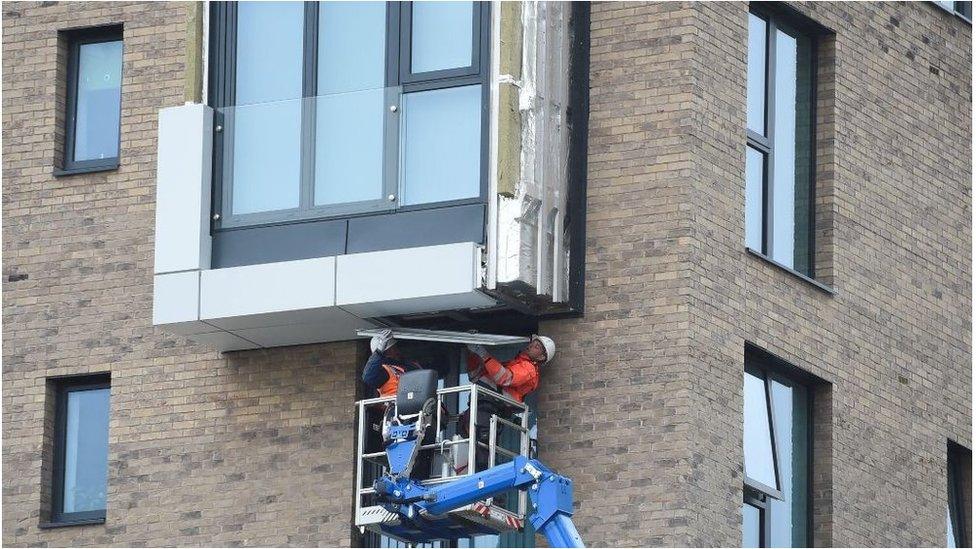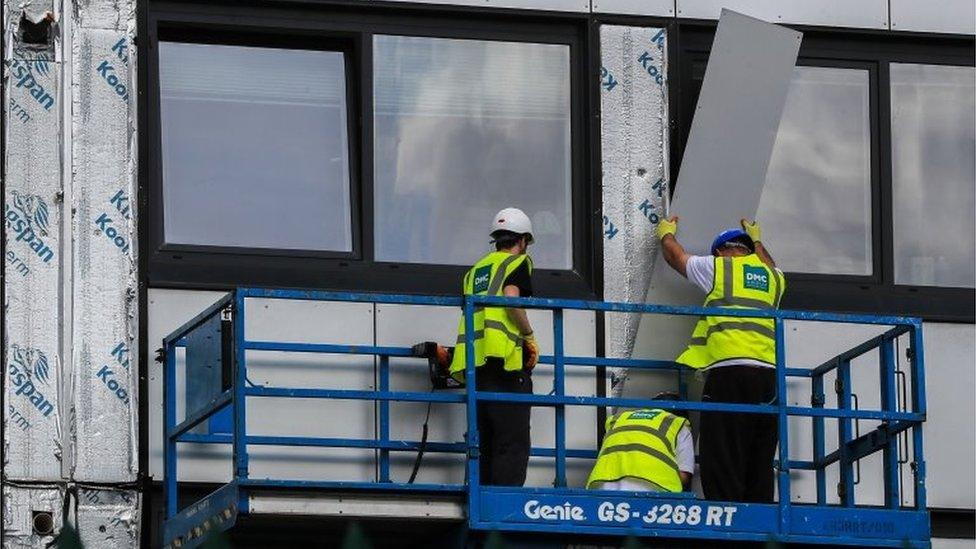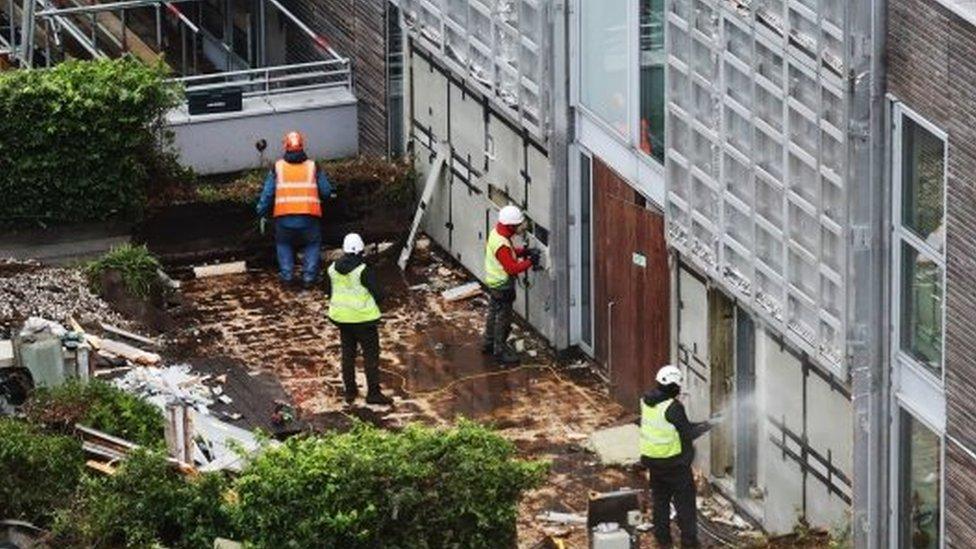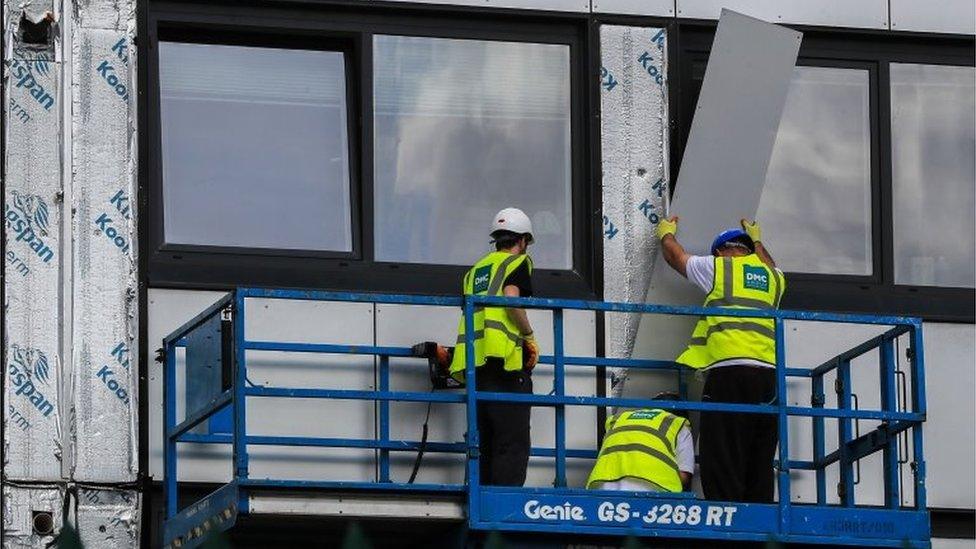Cladding: Dangerous material 'still allowed on new builds in NI'
- Published

Alan Mayrs told the Stormont Finance Committee NI's fire regulations are 'weak'
New buildings in NI can still be fitted with the type of highly-flammable cladding that has caused fires in high-rise structures across the world, according to a building control expert.
Stormont's Finance Committee heard that Northern Ireland's fire safety regulations are "weak".
It was told that regulations are not of the same standard in place in England.
Alan Mayrs, head of Building Control at Belfast City Council, was addressing the committee.
He told assembly members while there were regulations governing the use of insulation, these did not apply to exterior cladding.
"Theoretically [this] does not prevent the use of highly flammable cladding materials known to have caused rapid fire spread on high-rise buildings across the world," he said.
Mr Mayrs said this applied to "non-relevant buildings", which are mainly non-residential.
'Puzzling'
The committee has been discussing amendments to Northern Ireland's building regulations.
Ulster Unionist Steve Aiken, who chairs the committee, said it was puzzling there were different approaches being taken to fire safety strategies in different regions of the UK.
Mr Mayrs said Northern Ireland was the only region of the UK which did not require sprinklers in apartment buildings.

A £1.6bn fund was set up to remove dangerous cladding in England
Following the Grenfell tragedy, there had been a "backlash" over safety regulations in England and it had taken "the most cautious approach" to new guidelines, he said.
Grenfell Tower in west London caught fire in 2017 and flames spread via combustible exterior cladding. The blaze killed 72 people.
After the Grenfell fire, the UK government pledged that safe alternatives to dangerous cladding would be provided on all buildings in England taller than 18m.
It set up a £1.6bn fund to help foot the costs.
However, a report by MPs has said the £1.6bn the government has allocated for removing dangerous cladding is insufficient - with the real cost nearer £15bn.
The Finance Committee meeting heard that amendments to the regulations in Northern Ireland would only apply to new buildings.
"We do find the industry, in renovations of buildings, will pick up on these new standards, and while I say our own current guidance is weak, the industry generally have not exploited that guidance and have tended to follow the routes to compliance that have been in place in other parts of the UK for several years," said Mr Mayrs.
Related topics
- Published2 February 2021

- Published1 February 2021
